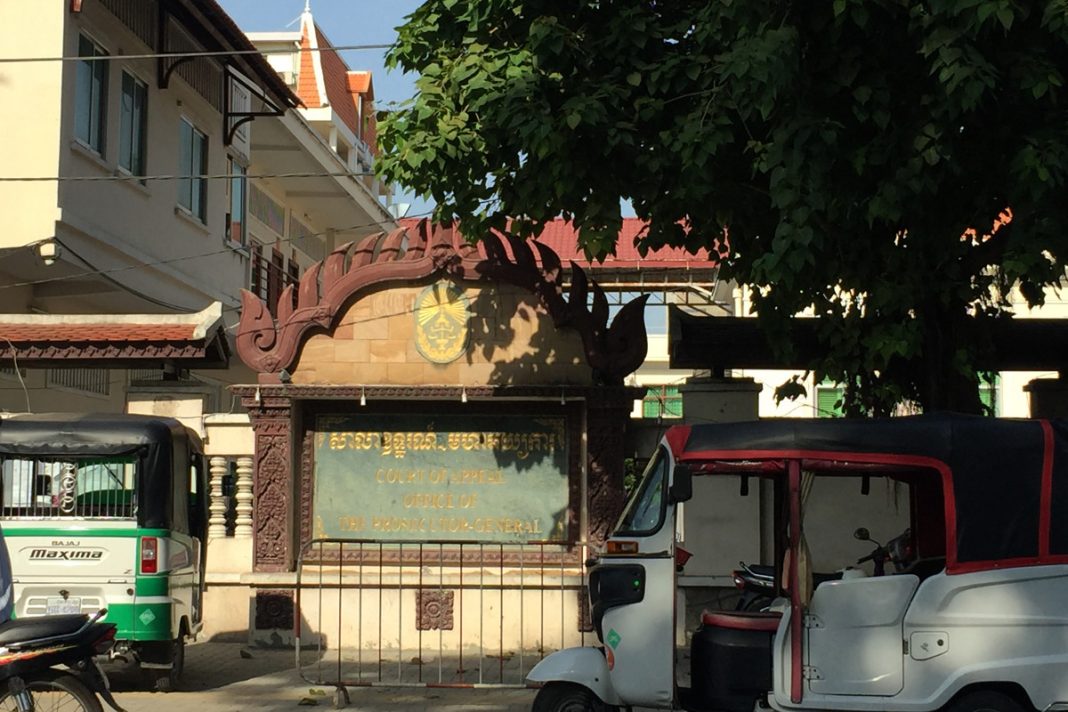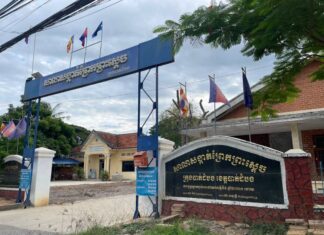Appeal Court judges fully explained fair-trial rights to defendants without lawyers in just six out of 56 applicable cases from January last year to April this year, according to the Cambodian Center for Human Rights’ trial monitoring report.
CCHR’s report, issued as a newsletter earlier this week, tracked 273 cases at the Appeal Court, and found that a lawyer had represented the accused in 66 percent of cases. However, when defendants did not have lawyers, “the accused’s rights have not been fully respected,” it says.
“[I]t is clear that in only a small number of cases the judges provided full explanations to the accused of their rights,” the report says. “Therefore, the accused’s rights have not been fully respected, and such practice did not conform with national and international standards on fair trial rights.”
Out of 56 applicable cases, judges neither informed nor explained the right to legal representation or self-defense in 20 cases, and only informed without explaining those rights in 30, the report says. It also notes, however, an improvement since CCHR discussed the issue with the Appeal Court in August.
Hun Seanghak, CCHR’s fair trial rights project coordinator, said the Appeal Court had exhibited better practices in recent months. Nevertheless, in terms of fair-trial rights, “the court has not fully implemented [them] in the context of national and international law.”
“This undermines the rights of the accused in proceedings, which is unfair because he does not know the reason or the accusation against him,” Seanghak said. According to the report, judges did not state all relevant charges against all defendants in 28 percent of cases.
In May, the Justice Ministry announced a campaign to speed up the processing of court cases in an effort to reduce a backlog around the country.
Seanghak said the acceleration had been noticeable, and cautioned the courts against overlooking the rights of defendants.
“We’re seeing that the Appeal Court has a lot of work to do,” he said. “We see that each case is very fast to resolve, so the details of explanations to the accused are not complete.”
Justice Ministry spokesman Chin Malin declined to comment, directing questions to the Appeal Court. Appeal Court president You Bunleng declined to provide an immediate response.
Am Sam Ath, monitoring manager at rights group Licadho, agreed that it was crucial that the courts followed correct procedure as they sped up their processing of cases.
“We see that the Ministry of Justice now has a campaign to clear cases in provincial and municipal courts faster than before,” he said. “Therefore, I think it is important that [the ministry] urges the [proper] implementation of procedures. We want this to include explaining to the accused so they are aware of their right to legal [representation] or self-defense.”
Failing to do so would be a loss of rights, Sam Ath said. “If the accused are not aware of their rights, [the court] has failed to fulfill its obligations … it makes them lose their rights.”












